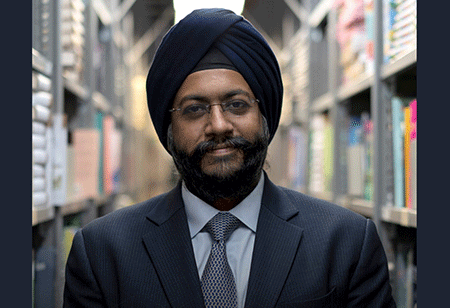
Amandeep Kochar his profound commitment to the library community has led to the development of innovative solutions and offerings that empower libraries to serve their patrons more effectively. With a focus on education technology, he has spearheaded the development of cutting-edge tools and resources, enabling libraries to adapt to the digital age seamlessly.
Moving beyond their traditional roles, global capability centers (GCCs), formerly known as global in-house centers, have undergone significant transformations in the corporate landscape. In the present-day scenario, these centers have expanded globally, crossing borders and facilitating the integration of diverse talent pools.
Breaking away from the status of offshore entities, GCCs have evolved into essential partners, particularly in the digital age. This shift is increasingly prevalent in India, driven by technological advancements, innovation, and a substantial talent pool. According to NASSCOM, India's GCC ecosystem comprises over 1,580 centers, with a market size exceeding $46 billion as of FY2023. With the increasing economic activity, GCCs in India have transitioned into strategic collaborators, leveraging their domain expertise to tackle complex challenges.
As the boundaries between nations and cultures fade in the digital realm, the transformative power of GCCs in promoting cross-border collaboration in the ever-evolving world of digital services is indispensable. Especially in digital education, where digital libraries have transformed the idea of learning, GCCs have taken a central role in enabling institutions across emerging markets to collaborate, create, and disseminate digital content globally. One such example is Baker & Taylor with its GCCs spread across the globe including India. Particularly in line with 'Make in India' principles, these centers are fostering local innovation while contributing to the economy's growth. By developing cutting-edge solutions for libraries and education, they promote local innovation, create intellectual property, and enable the export of unique solutions, heralding a new era of cross-border synergy and knowledge sharing.
Leading with cross-cultural competence, GCCs gain immensely from global collaboration, ultimately improving the end-user experience.
Role of GCC in promoting cross-border collaboration in the realm of digital libraries
Local expertise: Facilitating cross-border collaborations, local expertise plays a crucial role in comprehending the market nuances and assisting in developing tailored strategies. Effective communication and comprehension, a core element of managing digital libraries, is supported by GCCs through local language assistance and cultural adaptation, making digital library resources accessible to diverse audiences while encouraging seamless cross-border collaborations.
Innovation and tech transfer: Cultivating a two-way exchange, GCCs are an essential facilitator of innovation, value-added activities, and digital transformation. Given the innovation-driven disposition of GCCs, digital libraries can exchange globally competitive solutions while exercising knowledge and technology transfer, improving user experience.
Economic growth: Ceasing to be mere back offices and transforming into vibrant centers for innovation and operational change, GCCs have emerged as important engines of economic growth, especially in emerging markets like India. Leveraging India's vast talent pool, GCCs supporting digital libraries benefit from globally viable solutions and experience exponential growth, creating numerous job opportunities and contributing to the local economy.
Cross-cultural competence: As a bridge between cross-cultural collaboration and global expansion, GCCs serve a crucial role in promoting a global viewpoint. Especially in digital education, where digital libraries serve as vital sources of information dissemination, understanding diverse international audiences has become essential to underscore the importance of cross-cultural competence. Leading with cross-cultural competence, GCCs gain immensely from global collaboration, ultimately improving the end-user experience.
"Cultivating a two-way exchange, GCCs are an essential facilitator of innovation, value-added activities, and digital transformation."
Talent development: From mere task implementers to creators of business solutions, GCCs have come a long way, opening opportunities for talent development within the local workforce. Regarding digital knowledge expansion with digital libraries as a critical pillar, GGCs offer various talent development opportunities, creating room for a steady stream of skilled professionals, benefiting the local job market, and enriching the global talent pool. Baker & Taylor has over 150 librarians globally and plans to employ over 50 Librarians & young talent who have Library Sciences as their study background in India to support the global teams.
GCCs and cross-border collaborations: At a glance
Global capability centers have evolved into vibrant centers for cross-border collaboration and economic growth, playing a vital role in the ever-changing business world. As a cutting-edge emerging market, India, with its talent, cost-efficiency, and technological innovation, remains a top choice for hosting these centers. Especially when it comes to disseminating digital library services, India-based GCCs are promoting cross-border collaborations and driving economic growth, job creation, and skill development. Furthermore, as the GCC trend grows, these hubs will become increasingly sophisticated and well-equipped to capitalize on opportunities, innovate, and lead game-changing advancements in the library distribution and services business.
We use cookies to ensure you get the best experience on our website. Read more...